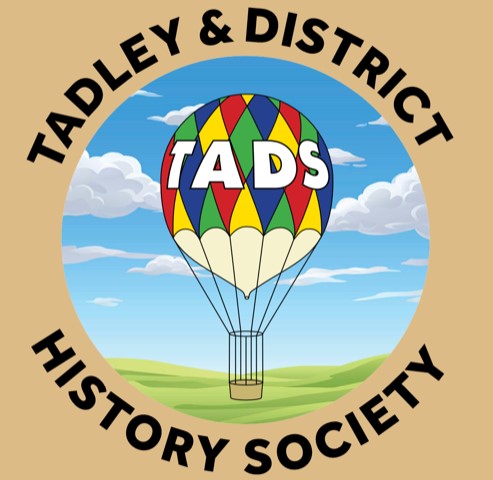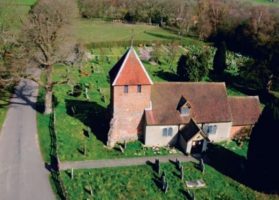Henry Ludlow (1577 – 1639) who lived locally in Tadley Place, was an English politician who sat in the House of Commons [1] between 1601 and 1611. During the Speaker’s address Henry let out a resounding fart. The House erupted in laughter. And then, so it seems, the members discussed the procedural issues relating to the farting incident. The incident was subsequently described in the following popular poem:
The Censure of the Parliament Fart (1607)
Never was bestowed such an art
Upon the tuning of a fart.
Downe came grave auntient Sir John Cooke
And redd his message in his booke.
Fearie well, Quoth Sir William Morris, Soe:
But Henry Ludlowes Tayle cry’d Noe.
Up starts one fuller of devotion
The Eloquence; and said a very ill motion
Not soe neither quoth Sir Henry Jenkin
The Motion was good; but for the stincking
Well quoth Sir Henry Poole it was a bold tricke
To Fart in the nose of the bodie pollitique
Indeed I confesse quoth Sir Edward Grevill
The matter of it selfe was somewhat uncivill
Thanke God quoth Sir Edward Hungerford
That this Fart proved not a Turdd [2]
Henry’s father, Sir Edmund Ludlow of Hill Deverill, a was a prosperous county gentleman with extensive estates in Hampshire and Wiltshire. In 1601 he conveyed the manors of Tadley and Sherborne St. John, Hampshire, to his first son Henry, shortly after the latter’s marriage to Lettice West. Ludlow evidently moved to Tadley at this time, having vacated his rooms at the Middle Temple in June 1600. Henry became the Member of Parliament for Andover in 1601, and the Member of Parliament for Ludgershall near Salisbury in 1604.
During a debate on the naturalization of the Scots, Henry was heard to fart sufficiently loudly to be clearly heard around the room. At the time, Robert Bowyer noted in his diary that the fart emanated from “the nether end of the House…whereat the Company laughing the Messenger was almost out of Countenance”. He added, however, that it was not done in disgrace since his father, Sir Edward, had also farted during a committee meeting: “So this seemeth “Infirmity Naturall”, not “Malice”.
The poem “Censure of the Parliament Fart” was one of the most popular comic political poems of the early Stuart era, and proved to be a template for a genre of political poetry, usually starting with the same ten or twelve lines. Further couplets were introduced during the 1610 and 1614 Parliaments, many versions continuing to be circulated in the 1620s, varying in length from around forty lines to over 225 lines, eventually referring to at least 112 members of parliament that sat in James’s first Parliament (in session from 1604 to 1610). Given that many of these Members were dead by 1622, the poem’s continued popularity in the 1620s seems remarkable.[3]
Henry was a son that shared his father’s reputation for irascibility and litigiousness, and much of his life is a tale of violence, lawsuits and family quarrels. In 1602 he was accused of attempting to murder Joel King, his father’s former servant who had eloped with and secretly married one of Ludlow’s sisters. In October, after the family had failed to intimidate King into leaving the daughter, a group of Ludlow’s men severely beat him in a Berkshire wood. This was followed in December by a more serious assault led by Ludlow (disguised in a taffeta mask) in which King was ambushed while riding to market from Tadley. The gang thrust pins down King’s throat, then hanged him from a tree until he nearly expired. [4]
Henry Ludlow died in 1639
References
[1] Image of Parliament in Session in the Reign of James I, early 17th century c1902-1905 (TADS Licenced Alamy stock photo OY47367744) [2] Bodleian, MS. Malone 23.p.2. All further manuscript citations are given in the text. For a discussion of Malone 23, see Arthur Marotti, Manuscript, Print, and the English Renaissance Lyric (Ithaca, N.Y., and London, 1995), 85-87;[3] Andrew McRae, Literature, Satire, and the Early Stuart State(Cambridge, 2004), 42-43.
[4] Ludlow, Henry I (c.1577-1639), of Tadley Park, Hants. Published in The History of Parliament: the House of Commons 1604-1629, ed. Andrew Thrush and John P. Ferris, 2010

